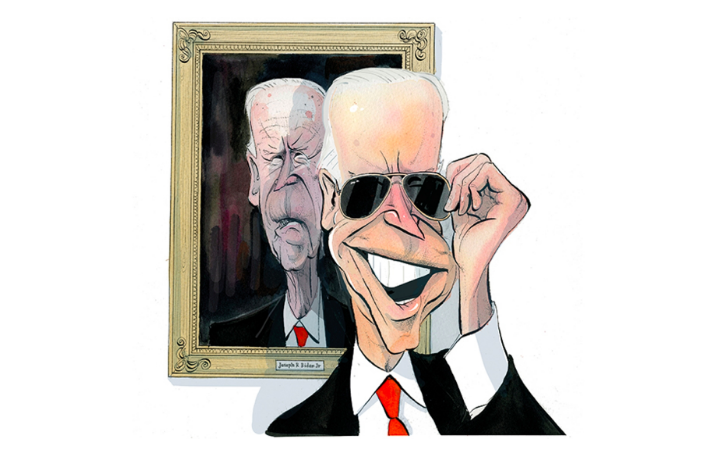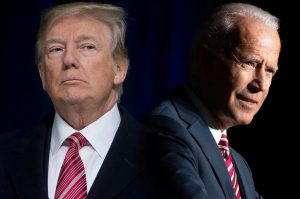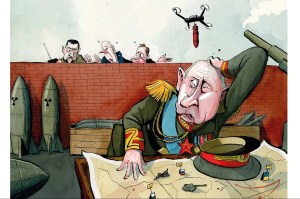For four years, President Donald Trump radicalized international relations. There was a shift towards the nation state and unilateralism, beginning with the United States. He viewed intergovernmental organizations like the WHO or the World Trade Organization with acute skepticism thanks to what he saw as their bureaucratic sloth and partisanship. His perception of the European Union and Nato was little better; the first he perceived as an unfair competitor; the second a free-loading bureaucracy. So it came as no surprise that the EU could barely contain its joy at Joe Biden’s election, even if certain eastern member states were reticent. However, the EU will be disappointed if it believes President-elect Biden’s foreign policy will align with its own. In reality, the process will see Biden’s alignment with much of Trump’s policies and the EU following Biden’s.
Personality notwithstanding, Donald Trump achieved a great deal in international affairs. He dared forcefully, often recklessly, to implement what professional politicians and diplomats over many years had recoiled from doing. He opened face-to-face negotiations with North Korea’s leader, took on China’s protectionism and insidious imperialism, unblocked the Middle East log-jam by encouraging Israeli relations with the Gulf States (and even Saudi Arabia), while rattling self-satisfied and sclerotic international organizations.
Trump’s mission is unfinished. But so much heavy lifting has been completed that the Biden team is bound to build on it. And the EU, forever lacking in strategic autonomy, will have little choice but to follow. They will be seduced by a change in tone and a new-found co-operative and multilateralist rhetoric. But even on issues close to home like burden-sharing in Nato — an old Obama gripe — little of substance will vary from the Trump posture. The first thing the EU will turn to in assessing the direction of travel will be personalities, then policies.
As Biden’s governing team is revealed, it is clear now that the erstwhile divisions between the restorers of Obama’s foreign policies and those in favor of change have melted into a fudge. As with all new administrations, permanent officials in European foreign ministries will be poring over the biographies of senior Biden officials to see what links they have with their capital.
Many of Trump’s changes will be continued, more slowly and doubtless in semi-camouflaged form, by those who served Obama. The French will be doubly pleased to see the appointment of old Obama hand Antony Blinken as Biden’s secretary of state. He served as deputy national security adviser from 2013 to 2015 and deputy secretary of state from 2015 to January 2017. French eyes will have lit up at Blinken’s attendance of the ultra-elite fee-paying Parisian high school, Jeannine Manuel, attended by the children of Nicolas Sarkozy, Alain Delon and the princely family of Monaco, even if this may not play well to Bernie Sanders’s wing of the Democrats.
Equally, John Kerry, Obama’s former secretary of state, as special envoy for climate, will warm French hearts for being a cousin of former French Green party minister Brice Lalonde. Or White House deputy principal press secretary Karine Jean-Pierre for being born in French Martinique and raised in Paris. Of course, all chancelleries the world over play this parlor game, only to discover a year or so later Lord Palmerston’s realpolitik wisdom that countries have no eternal allies only eternal interests.
So, in terms of policies, what differences of substance are the Europeans likely to encounter in Biden’s policies? The New York Times — obviously without sarcasm — described Biden’s diplomatic stance as one of ‘strategic empathy’. Changes will be at the ‘soft power’ end of the foreign policy spectrum, notably climate change. America’s rejoining of the Paris climate agreement will be the opportunity for a widely-covered transatlantic reunion. Although Trump’s economic decoupling from China and rivalry will continue, Biden will enroll the Europeans in attempting closer relations with China on issues of climate, health security and non-proliferation. A transatlantic charter may even be concocted to symbolize closer relations on international affairs.
But those European Union member states who have done their homework on Biden’s likely policies — if they think like Emmanuel Macron — will be disappointed by the deep-seated suspicion among Democratic strategists for the idea of ‘European strategic autonomy’. The French president’s recent ‘Macron doctrine’ is inextricably based on that notion, in industrial policy as much as defense.
[special_offer]
However, those in the German camp will be delighted with Biden’s clear attachment to the centrality of Nato in transatlantic security architecture, a joy witnessed in the German defense minister’s recent robust defense of America’s European security guarantees against Macron’s call to break free. But the German camp should be prepared for the quid pro quo: less free-riding and a binding commitment by EU member states to meet the two percent GDP target for financing Nato.
On that other subject close to Europe’s home, Russia, Biden strategists have wavered between closer relations on issues such as arms control and a tougher stance on, for instance, the Trump policy of removing US troops from Germany, which the Biden camp has made clear is ‘a gift to Putin’. Once again, this is likely to divide EU members, notably Macron, who controversially favors Europe working far more closely with Russia.
EU politicians’ and media acclaim for Biden has been dithyrambic — but be careful what you wish for. Change on the big issues is likely to be small. However, on those Biden policies directly applicable to the EU, the impact is likely to generate further cracks in a house divided already on economics, finance, and the ‘rule of law’.
This article was originally published onThe Spectator’s UK website.


















